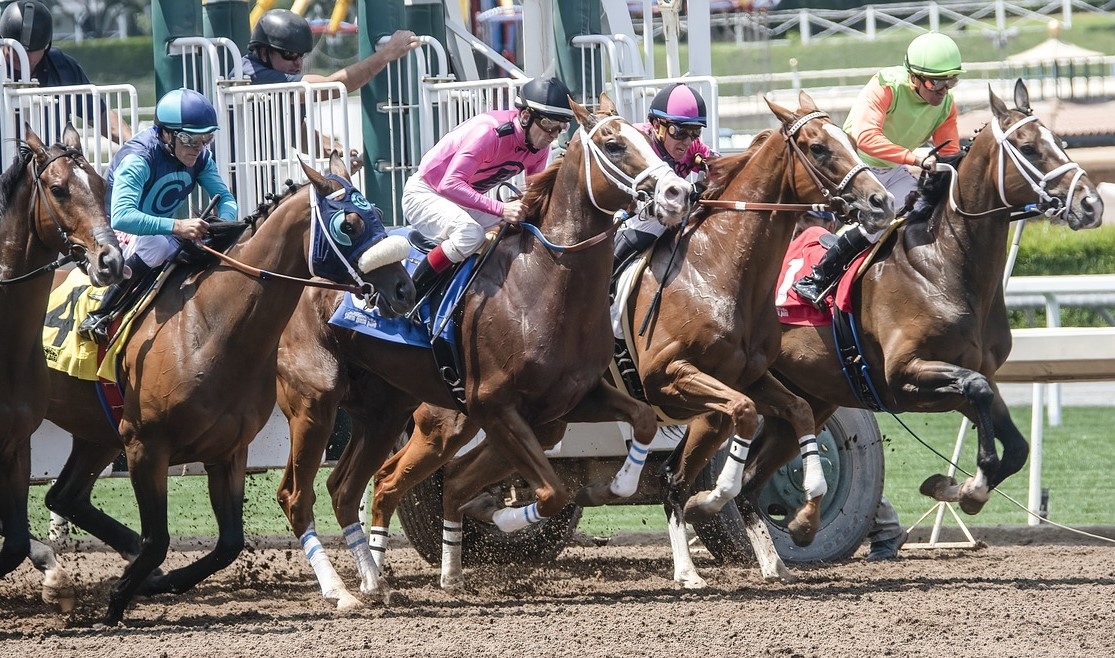
Most painful upsets in Triple Crown
The Triple Crown features many of the best successes in American horse racing history. The episodes of victory are celebrated by spectators every year. There are providers of good tips to conclude an accurate winner. However, the Triple Crown isn't only about the champions. Like any other sporting event, horse racing wraps up with tvg picks, winners, and, of course, losers.
Each season focuses on upsets that left some fans sad. While losing is a part of any competition, many spectators are still frustrated by the misfortunes of some contenders. Now, let's have a review of the most painful upsets since the beginning of the Triple Crown.
Carryback (1961)
Carryback is a plain-looking brown colt. He's not a big horse either. However, a growth surge brought him up and running on the racetrack. From then, he trained hard to become the most accomplished 2-year-olds of 1960. Carry Back has competed 21 times as a juvenile, improving steadily as his distance increased.
Carry Back was the heavy favorite to win the Belmont Stakes and claim the Triple Crown in 1961. Before a crowd of 51,586 people, including former President Dwight D. Eisenhower, Carryback sent off at odds of 2/5. Unfortunately, he came in seventh, 15 lengths behind the winner. An ankle injury on his left front ankle hampered him in the race.
Genuine Risk (1980)
In 1980, Genuine Risk dispelled a commonly held belief that good fillies can't match good colts. She became the second filly to win the Kentucky Derby in the 106-year run of America's largest racehorse event. Regret, who won the 1915 Derby 65 years earlier, was the first filly to win the Kentucky Derby.
Genuine Risk finished second in the Preakness Stakes after being smacked and carried wide by the winner Codex. Codex's jockey Angel Cordero Jr. even hit Genuine Risk in the face with his whip but was not disqualified.
She might have won the Preakness if winner Codex hadn't carried her severely wide on the far turn, a controversial action that enraged racing spectators.
Genuine Risk finished second to Temperence Hill in the Belmont Stakes. She was the first and only filly to sweep all three Triple Crown races.
Charismatic (1999)
Charismatic was a Thoroughbred racehorse who won the first two legs of the Triple Crown of Thoroughbred Racing in 1999. Charismatic seemed to have a chance to win the Triple Crown for the first time in 21 years. Charismatic was a 2-1 favorite in the 131st Belmont Stakes, with Menifee second at 7-2. The competition between Charismatic and Menifee was compared to the rivalry between Affirmed and Alydar in 1978.
Charismatic chased the filly Silverbulletday and took the lead as he entered the stretch and then began to recede. Prior to Charismatic's injury, the eventual champion, Lemon Drop Kid dominated in the race. The injury happened immediately at the finish line; therefore, it had no bearing on the 131st Belmont's outcome.
Before the Belmont, Charismatic had shown no signs of health issues. Wayne Lukas, Charismatic's trainer, has been criticized in the past for forcing horses into big races when they weren't ready. Many fans speculated that Charismatic could have won the Belmont Stakes if jockey Chris Antley had raced him more patiently.
War Emblem (2002)
War Emblem was a fiery dark bay horse who is not fond of people or other horses. War Emblem won the Kentucky Derby and the Preakness Stakes in 2002 but fell short of winning the Belmont Stakes' coveted Triple Crown of American horse racing.
Coming out of the gate, War Emblem faltered and nearly fell to his knees, then collided with another horse, dropping considerable lengths in the event.
Smarty Jones (2004)
When Smarty Jones won the Kentucky Derby and Preakness Stakes in 2004, he found fame all over the US. He finished second in the Belmont Stakes, failing to claim the Triple Crown.
Smarty Jones managed to win the Kentucky Derby by 234 lengths, and then the Preakness Stakes by 112 lengths. Since Spectacular Bid and Secretariat in the 1970s, Smart Jones has been the heaviest favorite for the Belmont Stakes. His popularity raised race attendance by 17,000 individuals and brought in the highest broadcast ratings in 14 years.
Smarty Jones made a solid sprint from the outside post, but Elliott kept him off the early lead until the field reached the backstretch. Then, he took over after the half-mile marker and kept going strong over the long backstretch despite being pressured, and Elliott let him run free midway around the far turn, and Smarty surged onto the track. Birdstone battled from a long way back, and Smarty Jones was overtaken in a race for the first time in his career.
On August 2, 2004, he announced the end of his racing career because of severe bruising on his ankle bones. Smarty Jones earned $2,613,155 throughout the course of his career, including eight victories and one place in nine starts.
Final Thoughts
For the record, there were 23 horses who went on to win the first two legs of the Triple Crown but failed to succeed in the Belmont Stakes. All of them are set to win the Triple Crown, but circumstances have hindered them from doing so. This demonstrates that horse racing, like any other sport, has no guarantee of a sure win.










